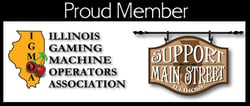There are many ways to promote your business and get in touch with your customers, but one of the best ways is through email. Email marketing campaigns are so widely used because they are often inexpensive, easily accessible to customers, and measurable! Here are some of our best practices for creating email marketing campaigns.
Keep Your Subject Lines Short
This is one of our most important tips. Short subject lines are a lot more enticing to customers who probably have other emails in their inbox. Make sure your subject line is short and to the point! You want to entice customers to open the email and read the rest of your content. They won’t feel a need to do that if all the information is already in the subject line! Try to keep your subject line under 15 words – under 10 is the goal!
Grab Your Customers' Attention in Your Subject Line
You want your subject lines to be as attention-grabbing as possible. Here are a few basic strategies to do this. Our friends at Hubspot have a couple of simple recommendations to make the most out of your subject line. You can check out more at their article How to Write Catchy Email Subject Lines: 19 Tips.
- Fear of missing out – tell customers what they could be losing!
- Example: Enter the Giveaway, $25k prize period ends tonight!
- Bring on the humor – appeal to your customers through a quick joke or a play on words
- Example: One Million Reasons to Join Our New Giveaway
- Inactivity Subject Lines – appeal to customers who haven’t been opening your emails
- Example: Still Interested in Winning a Million Dollars?
Know Your Audience
This is another important one. You should always know exactly who you are emailing and – more importantly – the people you are emailing should know who YOU are. If you received an email from a business you never heard of or from someone you had never given your email address to, you wouldn’t open it – and your audience is no different! Make sure your email list is from customers who chose to give you their email address. This could have been when they entered a giveaway or maybe you put a sign-up slip near the front door or with every check. It will make your emails more successful and your customers will be happier.
Keep the Important Stuff at the Top
Most customers will only read the first part of an email and then skim the rest. Therefore, it’s important to keep all the important information near the top of your email! This includes any deals, special offers, or incentives. The first half of your email should be interesting so that customers are engaged enough to keep reading the rest of the message.
Make it Personal
Customers are more likely to respond and engage with your email if it is more personal in nature. Try not to write like a robot and keep any unnatural wording or vocabulary out! Approach writing the email as if you are writing to a friend and not a stranger. If possible, use an email tool that allows you to personalize the greeting of an email by automatically adding the recipient’s name in the first greeting.
Get Visual
Wordy emails are some of the most boring ones to read in our opinion! But if you are planning on sending a longer email, make sure you include some images to keep the reader interested and engaged. The visuals can help break up long chunks of text and make the email seem shorter than it actually is! Pro tip: if you have a logo, be sure to include in the top left of the email! Customers will know to instinctively check that corner for a company’s logo.
Make it Measurable
Our final tip is to keep track of how well your emails perform. Almost every email marketing tool will allow you to see how many people opened your email and how many clicked on a link. Don’t ignore these statistics! Once you establish a baseline or average open-rate for your email, it can be your goal to introduce new elements to increase it. If you want to know more about open-rates and other email data, check out this helpful article from HubSpot. Try adding in an emoji to your subject line and then check how it affects your open-rate. Email marketing is all about trial and error and the best way to measure your successes (or your losses!) is through your email statistics.
If you are looking for more help on getting started with email marketing, check out some of these helpful sources below from the experts at HubSpot and Mailchimp!
Sources
https://mailchimp.com/help/best-practices-for-email-marketing/
https://blog.hubspot.com/marketing/email-marketing-guide
https://blog.hubspot.com/marketing/email-open-click-rate-benchmark




_121_Full%20Color_ON%20BLACK-01.png?width=267&name=AE_MultiLogo(H)_121_Full%20Color_ON%20BLACK-01.png)
